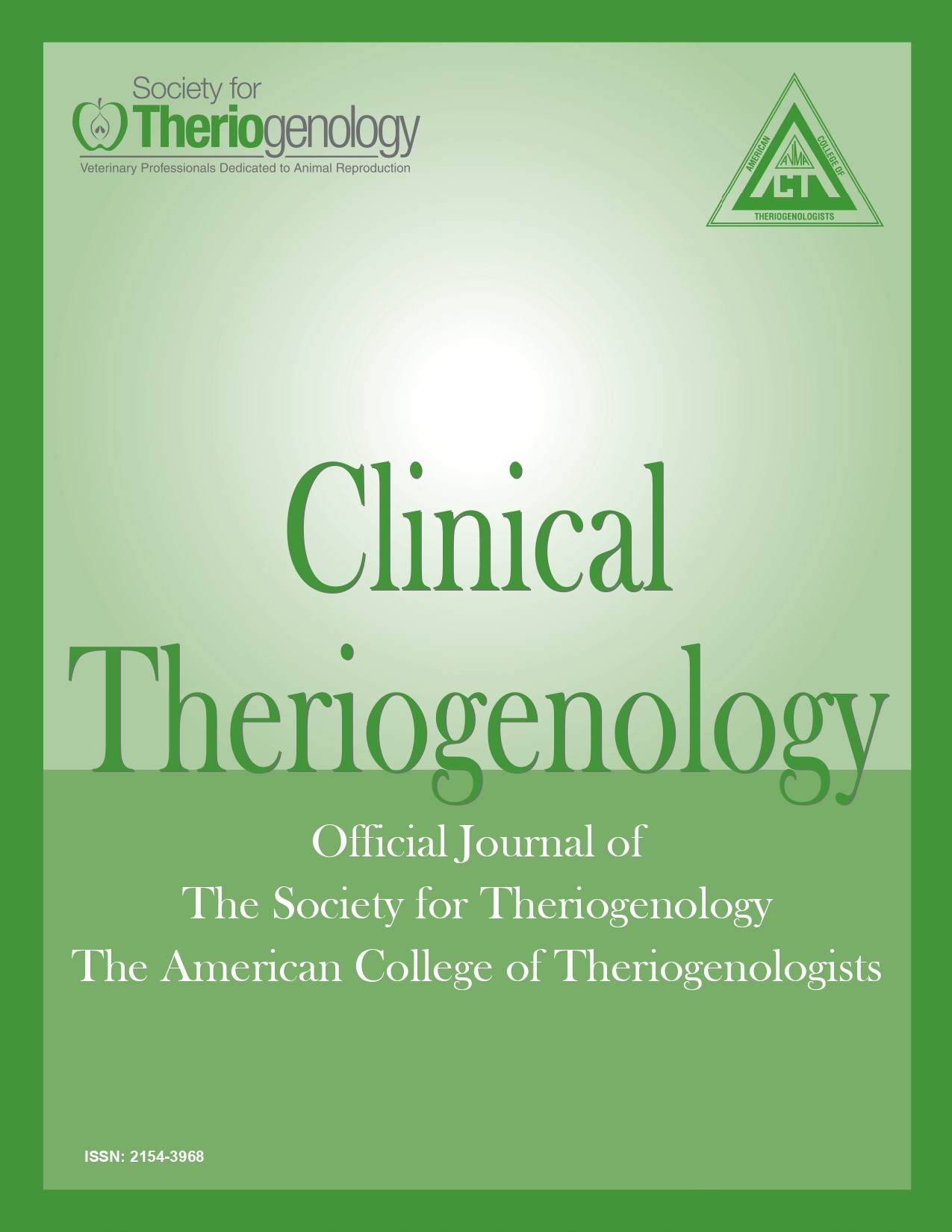Improvement of canine semen vitrification using sucrose and soy lecithin extender
Abstract
Major challenge in freezing semen for short or long term availability is avoiding damage to intact spermatozoa caused by freezing. Freezing-induced impairment becomes particularly problematic for low-quality semen. Most freezing methods involve tedious slow cooling, which requires increased processing time and specialized media. Although vitrification protocols are faster (no slow cooling) and provide improved results, they are not commonly used for canine semen. Our objective was to improve vitrification methods for canine semen by adding sucrose to a basic canine semen extender not containing animal proteins. Twenty ejaculates were obtained from 19 dogs. Semen volume, concentration, sperm motility, progressive motility, morphology, tail membrane integrity and acrosomal defects were determined on the day of collection. Each ejaculate was divided into 9 aliquots and diluated in semen extenders labeled A - G. Control extender consisted of TRIS, citric acid, fructose and antibiotics, with soy bean lecithin and sucrose added to create test extenders. For Extender A, only soy lecithin (1%) was added. Extenders B, C, and D contained 0.2, 0.25, and 0.3 M of sucrose, respectively, but no soy lecithin, whereas Extenders E, F, and G contained corresponding concentrations of sucrose, plus 1% soy lecithin. From each group, a 33 μl suspension of cells was dropped directly into liquid nitrogen. After at least 48 hours, frozen drops were placed in 5 ml of devitrification medium (control medium containing 1% bovine serum albumin) that has been prewarmed to 37ºC. The after thaw suspension was maintained at 37ºC for 10 minutes and was then centrifuged at 300 g for 5 minutes. The cell pellet was finally resuspended in 50 μl of devetrification medium only for sperm evaluation. After thaw evaluation included motility, progressive motility, morphology, viability, plasma membrane modifications, acrosomal defects, and DNA fragmentation. Neither soy bean lecithin (A) or sucrose alone (B, C, D) were sufficient for preserving thawed sperm quality. However, extenders containing soy lecithin and various concentrations of sucrose (E, F, G) resulted in significantly better semen quality than all other extenders. In particular, Extender F (2.5 M sucrose) had a higher proportion of motile (p < 0.001), progressively motile (p < 0.001), morphologically normal (p < 0.05) and viable (p < 0.01) spermatozoa compared to Extenders E and G. There was also a higher proportion of spermatozoa with intact DNA (p < 0.01) and normal plasma membrane integrity (p < 0.05) in group F. Vitrification of canine spermatozoa in extenders containing soy bean lecithin and sucrose preserved important physiological attributes, including viability, motility, progressive motility, sperm tail membrane integrity and DNA integrity during. We concluded that this method was simple, fast and effective for vitrification of canine semen. Use of soy lecithin in lieu of animal proteins (e.g. egg yolk) facilitates ease of shipping to countries with strict import requirements.
Downloads

This work is licensed under a Creative Commons Attribution-NonCommercial 4.0 International License.
Authors retain copyright of their work, with first publication rights granted to Clinical Theriogenology. Read more about copyright and licensing here.





